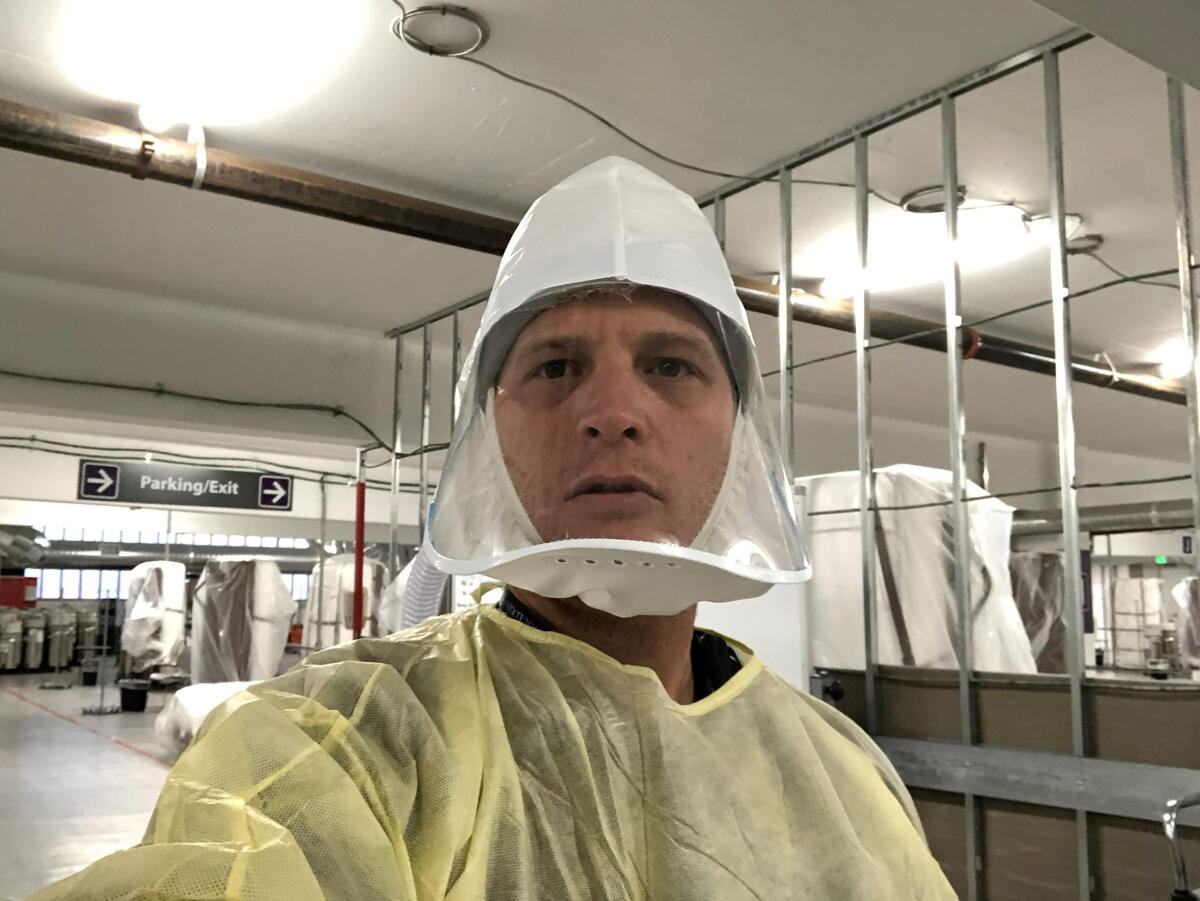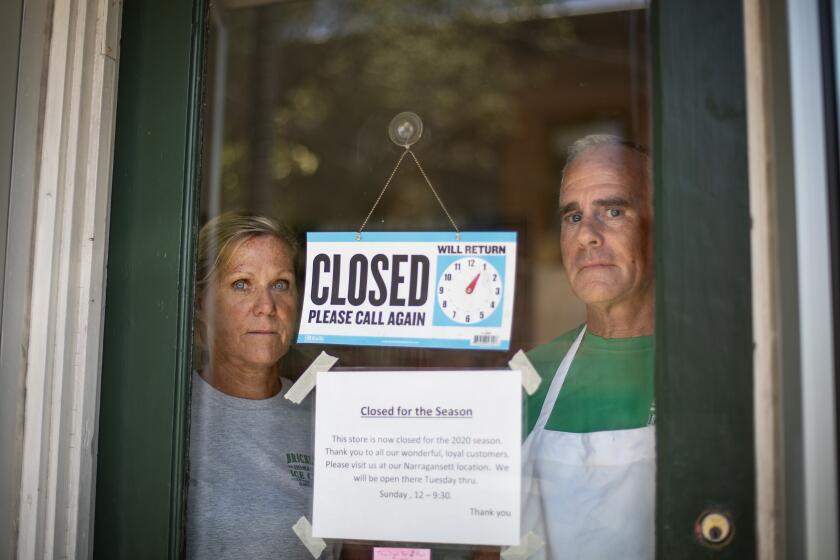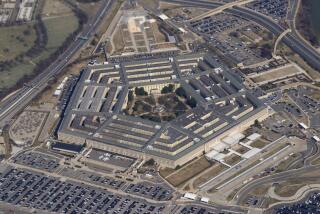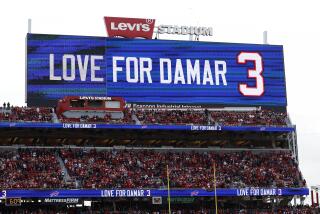This doctor took a selfie to show the gravity of the pandemic. Now it’s being used to deny it

A photo of a hospital’s alternative care site in Nevada is being misrepresented on social media — including by President Trump — to fuel the false notion that the COVID-19 pandemic is a hoax even as cases surge in the state.
Renown Regional Medical Center has been the primary target of renewed conspiracy theories online suggesting that hospitals are empty and the coronavirus is not as dangerous as top medical experts say it is. The hospital opened an alternative care site with two floors of supplemental hospital beds inside a parking structure Nov. 12 to accommodate an overflow of COVID-19 cases if needed.
A selfie by Dr. Jacob Keeperman, who works for the medical center, shows him standing in front of empty hospital beds at the auxiliary facility in Reno. The photo was taken the day the site was opened, before patients began arriving.
But some on social media are using the photo to allege that the pandemic has been exaggerated or is a hoax.
Trump amplified the false claim Tuesday, retweeting the photo to his 80 million followers. “Fake election results in Nevada, also!” he wrote.
According to Renown, the facility currently has 42 patients and has served 198 since it opened last month. The site, which was set up for patients who do not require long-term care, can house more than 1,400 patients.
There’s seemingly no antidote in sight for the burgeoning outbreak of coronavirus conspiracy theories, hoaxes, anti-mask myths and sham treatments.
The Twitter account making the false claim about the facility, @Networkinvegas, has repeatedly criticized the Nevada’s governor for his coronavirus restrictions. The account describes itself as an inside source of information on Las Vegas, including “everything you need to network, hook up, and have a good time” in the city.
“Here is the fake Nevada parking garage hospital picture that our moron governor tweeted, proving it’s all a scam,” the account tweeted. “No patients, folded up beds, wrapped up equipment that’s never been used! They spent millions on this scam and never seen a single patient in this fake hospital!”
The site could not be immediately reached for comment.
In reality, Keeperman, medical director for Renown’s Transfer and Operations Center, shared the photo of himself on Twitter in hopes of conveying the gravity of the situation at the hospital. But his tweet was quickly picked up and misrepresented online.
“It is really demoralizing to everybody who is out working so hard to have this politicized and polarized so much,” he said. “I am holding patients’ hands when they take their very last breath because their loved ones can’t be with them.”
The Nevada Hospital Assn. reported that a record-high 1,589 patients were hospitalized with confirmed or suspected cases of COVID-19 on Tuesday. Because of competing demands, including the flu, 78% of the state’s nearly 6,900 staffed hospital beds are occupied.
In northern Nevada, hospitals have experienced a more-than-250% increase in confirmed hospitalized cases in the past month, the association reported. In Washoe County, where Renown is located, supplemental beds have allowed hospitals to remain at 86% capacity.
Nevada Gov. Steve Sisolak fired back at Trump, saying that the state has had to deal with his nonstop attempts to politicize the coronavirus, which has killed more than 270,000 Americans.
Early in the pandemic, photos of empty hospital waiting rooms spread online to falsely suggest that coronavirus was a hoax. Hospital officials responded by explaining that the lack of people in the public areas reflected new procedures to protect patients and staff by limiting visitors and minimizing shared waiting spaces.
More to Read
Sign up for Essential California
The most important California stories and recommendations in your inbox every morning.
You may occasionally receive promotional content from the Los Angeles Times.











